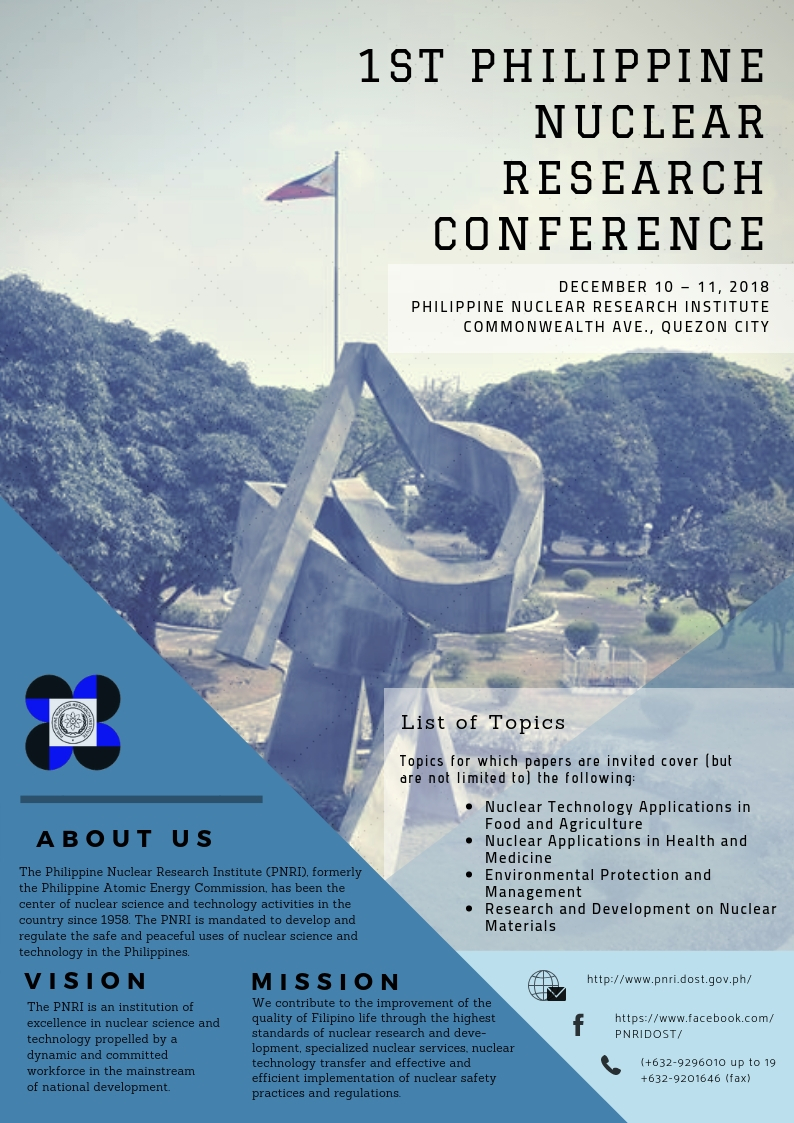Missing Density Gauge with Radioactive Materials Recovered
- Details
Missing Density Gauge with Radioactive Materials Recovered
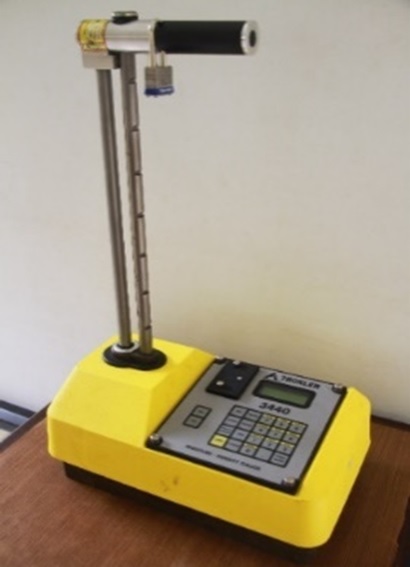
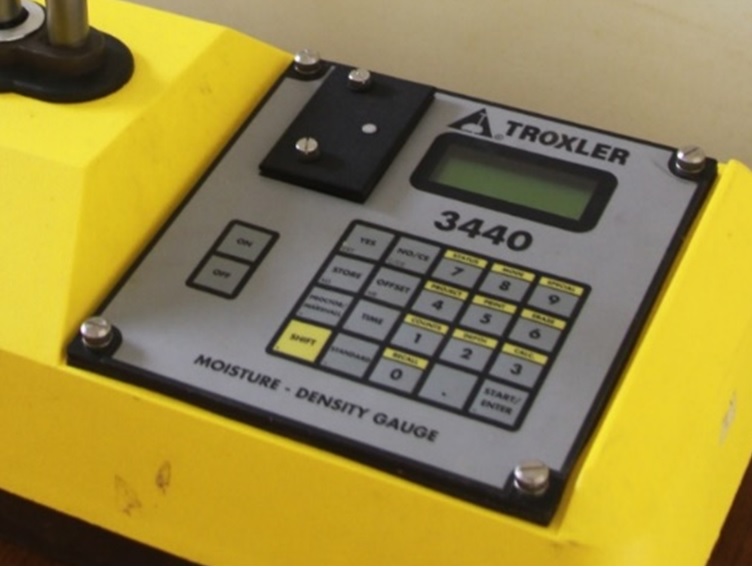
A density gauge equipment with radioactive materials previously reported missing was finally recovered after a two-month search.
The equipment was recovered by its owner, an industrial firm licensed by the Department of Science and Technology – Philippine Nuclear Research Institute (DOST-PNRI), when an anonymous person tipped them on the whereabouts of the TROXLER 3440. Refusing to identify himself, the John Doe surrendered the equipment to the owner after learning of its health hazards.
Moisture density gauges such as the TROXLER 3440 are used for testing of soil, asphalt and concrete materials, and contain radioactive materials within its shielding that emit significant levels of ionizing radiation.
After informing the police and barangay officials of its successful recovery, the owner transported the equipment to DOST-PNRI on October for further verification/confirmation. The owner then returned the equipment to their facility for safekeeping and has recently filed their concluding report on the incident.
DOST – PNRI is the the agency mandated to license and regulate the use of radioactive materials in industry, medicine, academe, research, and other applications.
Fourth Philippine Nuclear Youth Summit
- Details
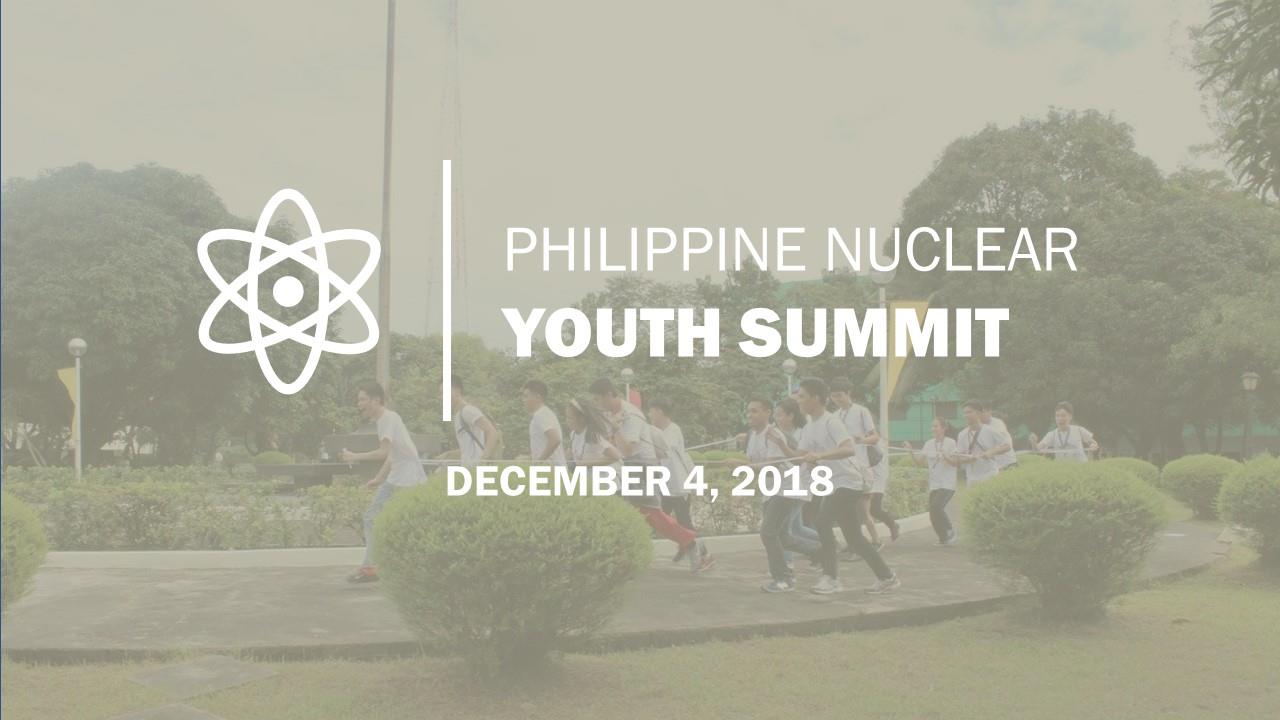
The Philippine Young Generation in Nuclear (PYGN), in partnership with the Department of Science and Technology-Philippine Nuclear Research Institute (DOST-PNRI), will be holding the 4th Philippine Nuclear Youth Summit (PNYS) on December 4, 2018, 8:00AM – 5:00PM at the DOST-PNRI Auditorium, Commonwealth Ave., Diliman, Quezon City.
The Philippine Nuclear Youth Summit (PNYS) aims to promote the beneficial applications of nuclear science and technology through various activities such as the Nuclear 101 Awareness Seminar, Nuclear Amazing Race, Video-Making Contest and a Research Proposal Writeshop.
This event is open to Senior HS and College students, as well as Young Professionals aged 40 and below.
Attendance is via online registration. Accepted applicants will be emailed. Please keep posted for updates in case slots are still available!
PNRI at the 14th National Biotechnology Week
- Details
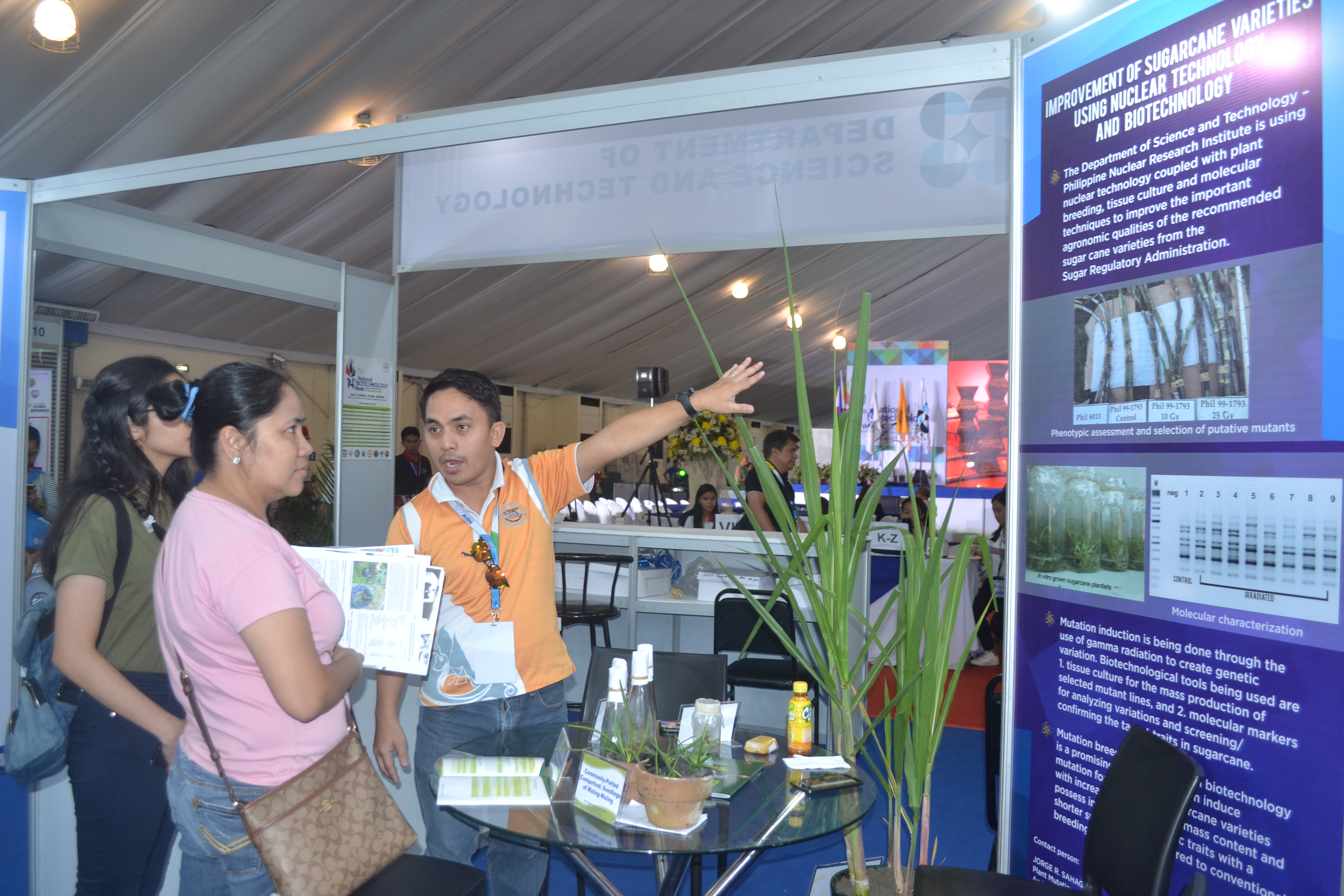
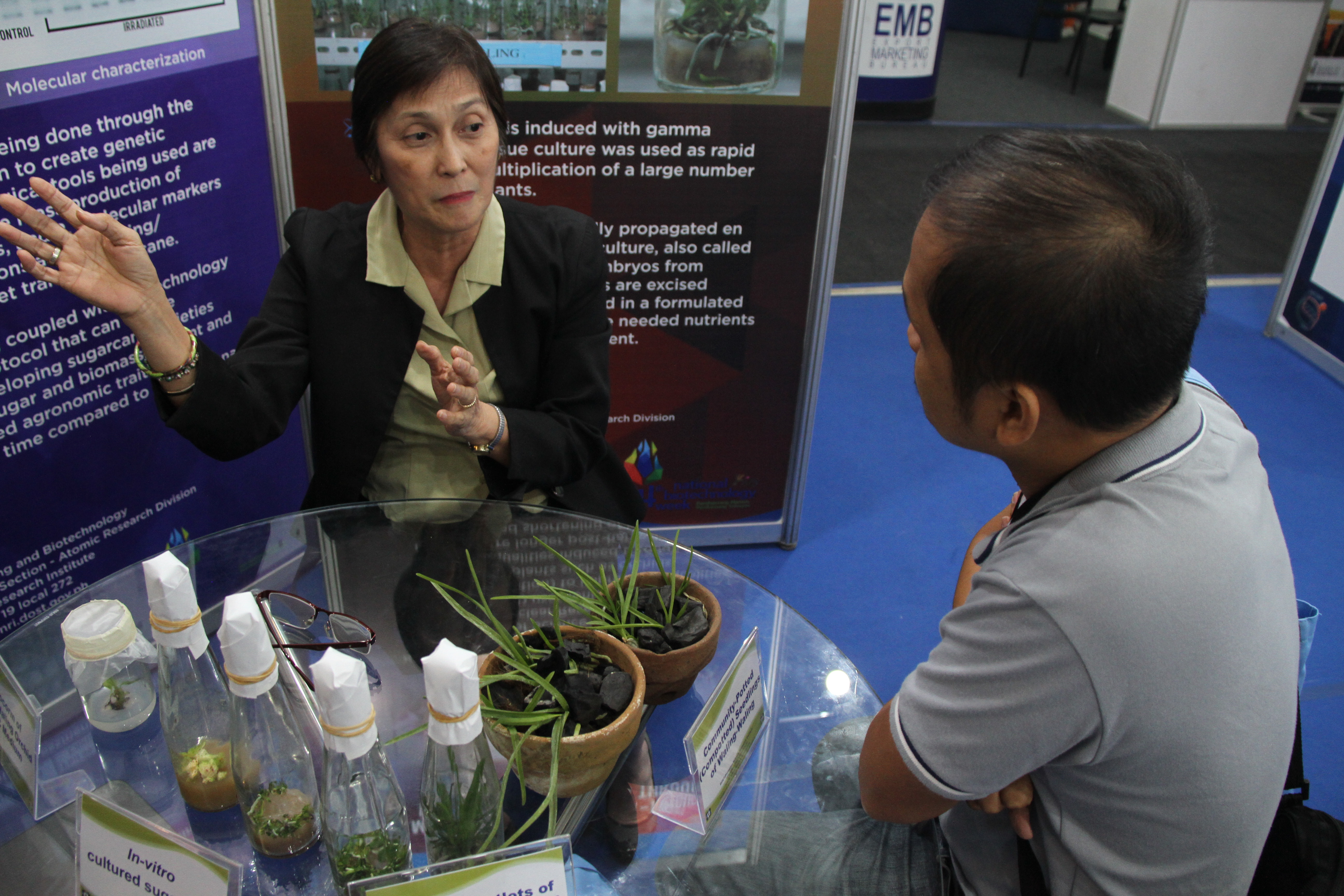
PNRI researchers from the Agriculture Research Section explaining the mutation breeding technology being used to develop new varieties of sugarcane and waling-waling.
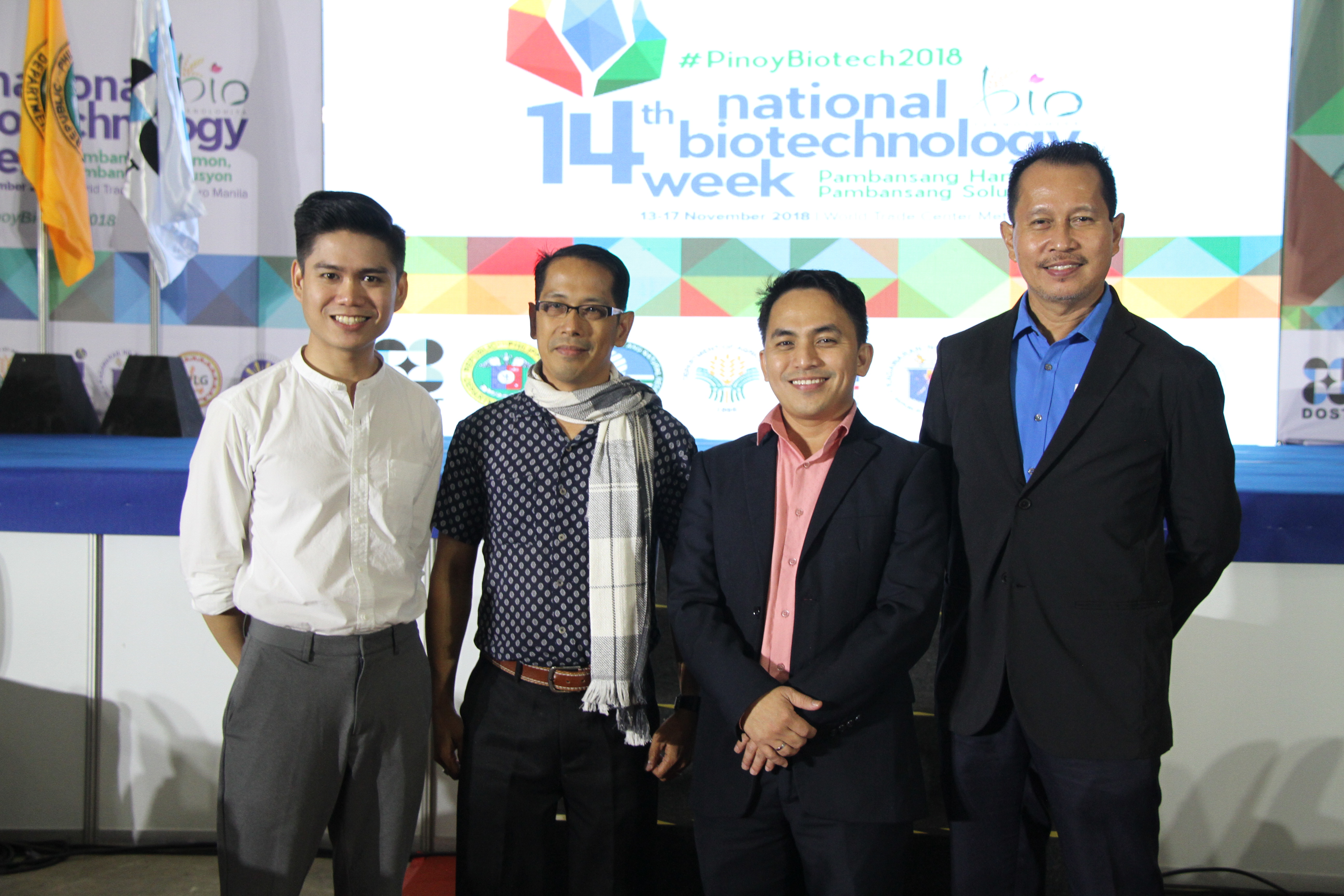
The speakers for the Forum on Applications of Biotechnology in Sugarcane Breeding. From right: PNRI career scientist Mr. Fernando Aurigue, who delivered the opening remarks, PNRI research specialist Mr. Jorge Sahagun, and DA-SRA-LGAREC research specialists Mr. Rimmon Armones and Mr. John Moises Relles.
PNRI at the 14th National Biotechnology Week
Highlighting the role of various nuclear and radiation applications in biotechnology, the Department of Science and Technology – Philippine Nuclear Research Institute joined several other government agencies in celebrating the 14th National Biotechnology Week at the World Trade Center, Pasay City from November 13 to 17, 2018.
The DOST takes the helm in leading the week-long celebration with the theme Pambansang Hamon, Pambansang Solusyon, reflecting its objective of harnessing biotechnology and related techniques to in overcoming challenges such as in food security, health, and economic development.
Scientists and researchers from the PNRI Agriculture Research Section and the Department of Agriculture – Sugar Regulatory Administration – La Granja Agricultural Research Center (DA-SRA-LGAREC) featured exhibits on the Institute’s latest developments on mutation breeding and tissue culture applications, including agricultural crops such as sugarcane and ornamental plants such as the Waling-Waling orchid.
PNRI also hosted the Forum on Applications of Biotechnology in Sugarcane Breeding on the afternoon of November 13, with research specialists from DOST-PNRI and DA-SRA as speakers.
The National Biotechnology Week celebration is brought about by the collaboration of the DOST, DA, Department of Department of Environment and Natural Resources (DENR), Department of Health (DOH), Department of Education (DepEd), Department of Interior and Local Government (DILG), Department of Trade and Industry (DTI) and the Commission on Higher Education (CHED).


























